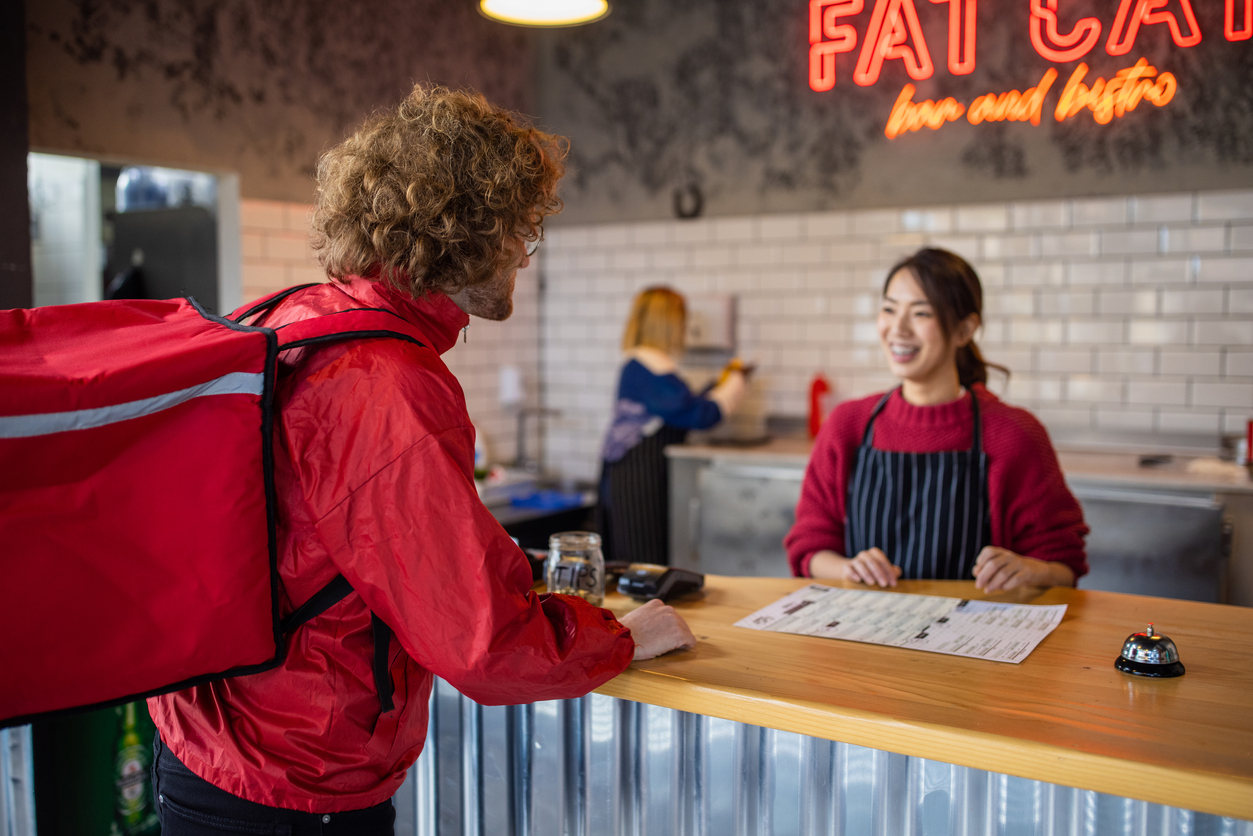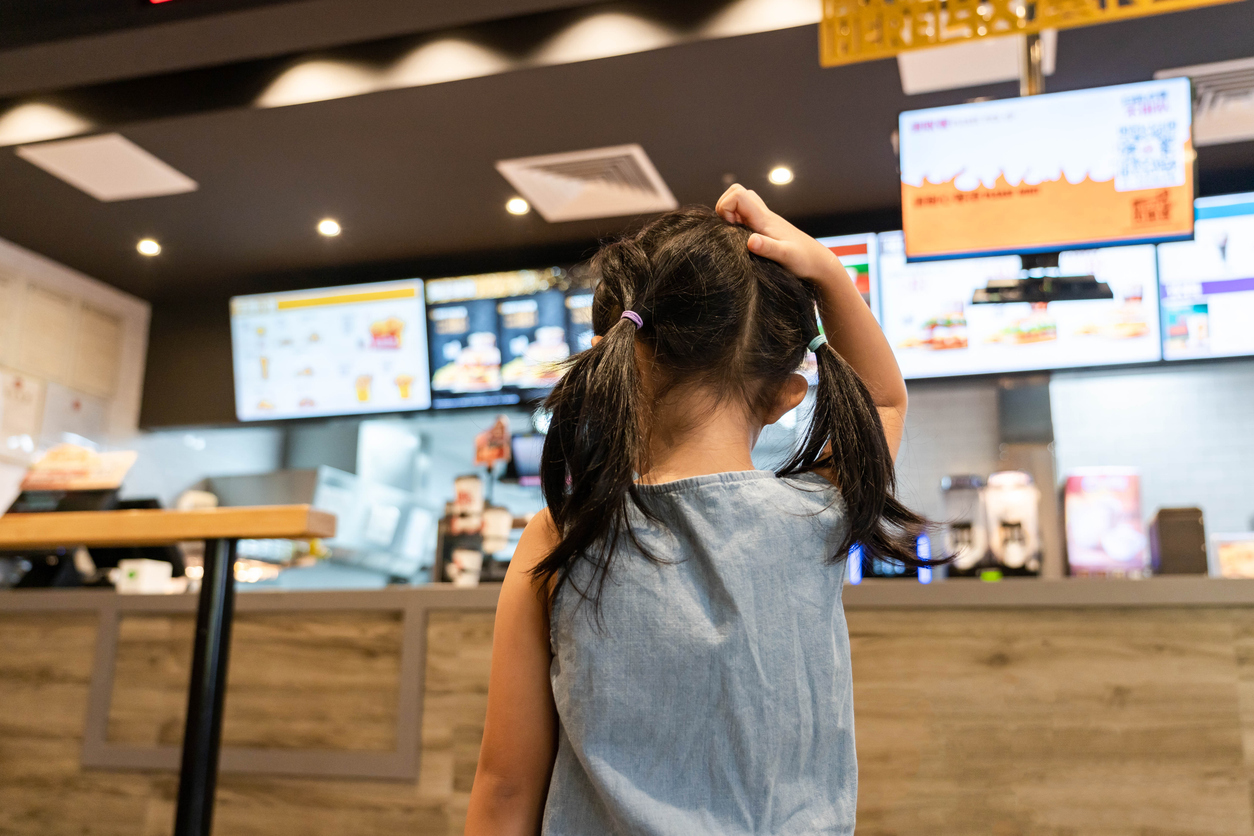What Is Food Delivery Management Software?
The food delivery management software is a specialized tool designed to help restaurants handle and monitor the entire process of delivering food, from receiving orders to tracking delivery drivers and managing payments. It automates many tasks that were previously time-consuming, such as order taking, dispatching, and logistics planning. This not only saves time but also reduces human error and improves overall efficiency. As a result, restaurants can focus on providing high-quality food and exceptional customer service while the software handles the logistics.
Best Software For Food Delivery Management
Delivery management software should have a user-friendly interface, be customizable based on the needs of the restaurant, and integrate seamlessly with existing systems. It should include real-time order tracking, driver tracking, route optimization, and automated dispatching. Some popular options include:
Uber Eats
With its easy-to-use interface and real-time tracking, Uber Eats is a top choice for many restaurants. It allows customers to track their orders from the moment they're placed until they arrive at their doorstep. This not only provides transparency but also helps manage customer expectations. Integrating with Checkmate, Uber Eats streamlines the ordering process and helps restaurants manage orders from multiple platforms.
Grubhub
Grubhub offers a comprehensive delivery management system that includes features such as route optimization, driver tracking, and automated dispatching. Its user-friendly interface makes it easy for restaurants to customize their settings and manage their deliveries efficiently. GrubHub also integrates with many POS systems, making it a seamless addition to any restaurant's operations.
DoorDash
Another popular option is DoorDash, which offers real-time order tracking, driver tracking, and advanced analytics. With its intuitive platform, restaurants can easily assign drivers to specific orders based on location and availability. DoorDash also provides restaurants with valuable data, including customer insights and sales trends, to help them make informed business decisions.
ezCater
The ezCater platform streamlines the catering process for restaurants by connecting them with reliable and high-quality caterers. Restaurants can easily place orders, track deliveries, and manage invoices through the platform. With Checkmate integration, ezCater also provides a wide variety of menu options to meet any event or dietary needs. Additionally, ezCater offers personalized support to ensure a smooth and successful catering experience for restaurants and their customers.
Allset
Allset works with Checkmate to provide restaurants with a pre-ordering and online payment system for their dine-in and takeout orders. This allows customers to skip the wait at busy restaurants and have their food ready upon arrival. Allset also offers personalized recommendations for dishes based on customer preferences, making it easier for them to discover new menu items. With its partnership with Checkmate, Allset is able to offer a seamless dining experience for both restaurants and customers.
Features Of Food Delivery Management Software
The rise in popularity of food delivery services has led to the development of various software options for managing these operations. These software solutions offer a range of features that make it easier for restaurants to manage and optimize their food delivery process. Some common features include:
Real-Time Tracking
Real-time tracking plays an important role in food delivery for customers and restaurant owners. With the help of GPS, customers can track their orders and get real-time updates on their delivery status. This eliminates the need for constant communication between the restaurant and customer, reducing wait times and improving overall efficiency.
Order Management
Food delivery management software allows restaurants to easily manage incoming orders from multiple sources, such as online platforms or phone calls. Orders can be seamlessly organized and sent to the kitchen for preparation, reducing errors and streamlining the ordering process.
Delivery Route Optimization
Optimizing delivery routes is crucial to ensuring timely deliveries and minimizing costs for restaurants. Food delivery management software uses advanced algorithms to create optimized routes based on factors such as distance, traffic conditions, and order priority. This saves time and money for both the restaurant and its customers.
Efficient Communication
The software also enables efficient communication between the restaurant, delivery drivers, and customers. Real-time updates on order status and ETAs can be sent to customers via SMS or email, keeping them informed and satisfied. Delivery drivers can also use the software to communicate any issues or delays, allowing for quick resolution and customer service.
Proof Of Delivery
This feature allows for electronic signatures and photo attachments, ensuring transparent and dispute-free delivery processes. This is especially useful for high-value or sensitive orders, giving customers peace of mind and reducing the risk of order disputes. It also provides valuable data for restaurants to track delivery success rates and make improvements as needed.
Customer Experience Enhancement
To enhance the overall customer experience, delivery management software can be integrated with existing restaurant apps or websites. This allows customers to place orders directly from their preferred platform and track the status of their delivery in real time. In addition, personalized promotions and special offers can be sent through the app or website, increasing customer loyalty and satisfaction.
Choosing The Right Delivery Management Software
The right delivery management software can make all the difference in streamlining operations and improving customer satisfaction. When considering which software to invest in, it's important to look for features such as real-time tracking, automated order dispatching, and customizable notifications for customers and delivery drivers.
Additionally, it's crucial to choose software that can integrate with existing systems and platforms, making the transition smoother and more efficient. The software should also offer robust reporting and analytics capabilities, allowing restaurants to gain valuable insights into their delivery process and make data-driven decisions for improvement.
Benefits Of Food Delivery Management Software
Many customers value being able to order their food for delivery due to its convenience. Due to the rise of online ordering platforms, third-party delivery services, and food delivery popularity, restaurants face increasing pressure to provide efficient, reliable, and timely delivery services. Food delivery management software can help restaurants achieve these goals through a variety of benefits, such as:
Track Orders
One of the most useful benefits of food delivery management software is the ability to track orders in real time. This ensures that both the restaurant and the customer are aware of the status of their order, from preparation to delivery. It also allows for easy communication between all parties involved, reducing the risk of miscommunication or delays.
Improve The Customer Experience
Customers have a ton of options when it comes to food delivery, and they will not hesitate to switch to a different platform if their experience is poor. Food delivery management software can help improve the customer experience by providing them with accurate estimated delivery times, order updates, and options for contactless delivery. This level of transparency and convenience will keep customers coming back.
Retain More Customers
Customer retention is one of the biggest benefits of implementing food management delivery software. Its features improve the customer experience and also enhance restaurants' chances of getting their customers to come back. With the ability to easily track orders, address any issues that may arise, and offer personalized promotions and discounts, restaurants can keep their customers satisfied and loyal.
Reduce Costs
Food delivery management software may cost some money upfront, but it should easily help them save money in the long run. With the ability to accurately track inventory and streamline delivery processes, restaurants can reduce waste, avoid overstocking, and cut down on labor costs. This allows restaurants to allocate their resources more efficiently and increase profits.
Keep Track Of Performance
A good food delivery management system can keep track of delivery performance and provide restaurants with detailed reports. This allows restaurants to identify any problem areas and make the necessary changes to improve their delivery services. By keeping track of performance, restaurants can ensure that they are meeting customer expectations and delivering orders on time.
Faster Delivery Time
This is perhaps one of the most obvious benefits of using a food delivery management system. By automating processes and optimizing routes, restaurants can significantly reduce the time it takes to deliver orders. This not only improves customer satisfaction but also allows restaurants to handle more orders in a shorter amount of time.
Improve Your Delivery Process With Checkmate
Implementing a food delivery management system through Checkmate can benefit restaurants looking to improve their delivery services. With features like automated order-taking and optimized routes, restaurants can streamline their delivery process and provide better service to their customers. Additionally, real-time tracking and performance reports allow for continuous improvement and increased customer satisfaction. Contact us and see how your restaurant can benefit!




